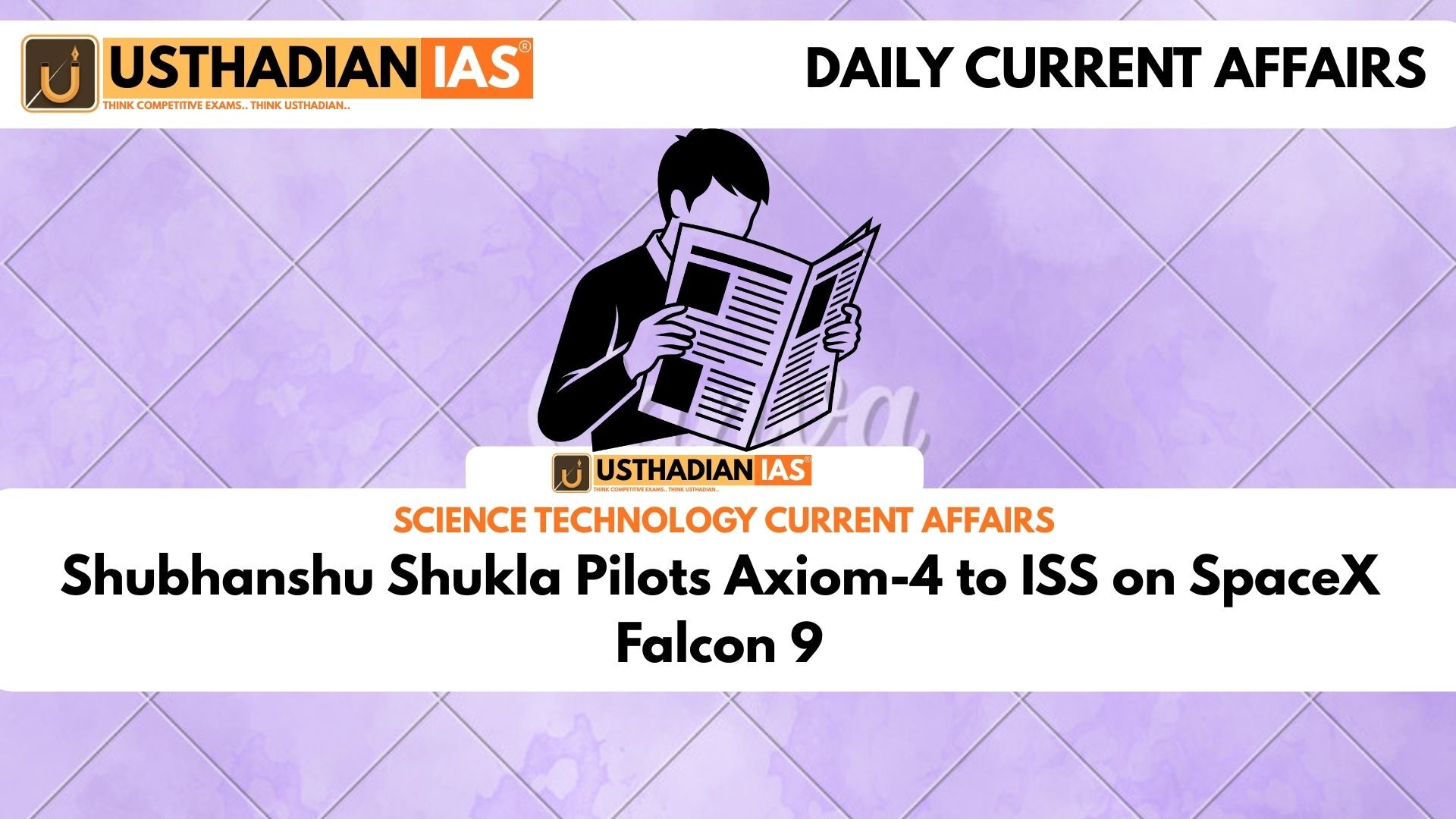India’s return to human spaceflight
Shubhanshu Shukla Pilots Axiom-4 to ISS on SpaceX Falcon 9: On 25 June 2025, India made history again in space exploration. Group Captain Shubhanshu Shukla, a seasoned Indian Air Force test pilot, became the first Indian to work aboard the International Space Station (ISS). He launched aboard SpaceX’s Falcon 9 Block 5 rocket from Kennedy Space Center in Florida, piloting the Axiom-4 mission.
This makes Shukla the second Indian to travel to space after Rakesh Sharma’s 1984 mission. But unlike Sharma, who flew on a Soviet spacecraft, Shukla’s journey is part of a collaborative commercial spaceflight, showcasing India’s evolving role in global space missions.
From fighter jets to orbit
Shubhanshu Shukla was born in Lucknow, Uttar Pradesh, in 1985. He graduated from the National Defence Academy and was commissioned into the IAF in 2006. Over his career, he flew advanced jets like Su-30 MKI, MiG-29, and Jaguar, logging over 2,000 flight hours.
His space journey began in 2019 when he joined the ISRO Gaganyaan astronaut programme, undergoing intense training in Russia and Bengaluru. In 2024, he was selected as the pilot for Axiom-4, marking a major leap in his career.
Falcon 9 and Crew Dragon features
The mission used Falcon 9 Block 5, a reusable rocket system known for its high safety and success rate. This rocket, certified by NASA for human missions in 2020, launched a Crew Dragon capsule into orbit, carrying four astronauts, including Shukla.
The Crew Dragon is mostly automated, with pilots like Shukla overseeing critical procedures. Its safety, precision, and smart systems have made it a regular choice for ferrying astronauts to the ISS.
A diverse international crew
The Axiom-4 crew isn’t just about India. It includes space veterans and specialists from different countries:
- Peggy Whitson (USA), former NASA astronaut and commander
- One mission specialist from Poland
- One from Hungary
Together, the team will spend 14 days in space conducting 60 scientific experiments, including seven projects from India. These cover studies on microgravity, biological systems, and new materials.
A milestone with deeper meaning
Shukla’s flight is more than just a mission. It marks India’s first presence on the ISS and brings the country closer to becoming a key space partner globally. It also complements ISRO’s ongoing Gaganyaan human spaceflight programme.
This mission adds weight to India’s credentials in space exploration and strengthens its partnership with global agencies like NASA and Axiom Space.
Overcoming setbacks before launch
The road to the launch wasn’t smooth. Technical issues, such as a liquid oxygen leak, and bad weather delayed the mission. But careful planning and checks ensured the launch happened smoothly in the final window on 25 June 2025 at 12:01 PM IST.
Static Usthadian Current Affairs Table
| Event Name | Astronaut Name | Spacecraft Used | Launch Date | Country |
| Axiom-4 Mission | Shubhanshu Shukla | Crew Dragon Capsule | 25 June 2025 | India |
| First Indian on ISS | Shubhanshu Shukla | — | 2025 | India |
| First Indian in Space | Rakesh Sharma | Soyuz T-11 | 1984 | India/USSR |
| Rocket Used | SpaceX Falcon 9 Block 5 | — | 2025 | USA |
| Crew Members | 4 | — | 2025 | Global Team |
| Launch Site | Kennedy Space Center | — | Florida, USA | USA |
| ISRO Astronaut Training | Bengaluru, Russia | — | Since 2019 | India/Russia |
| Indian Experiments Onboard | 7 | — | 2025 | India |
| SpaceX Falcon 9 Certified | NASA | — | November 2020 | USA |
| Static GK Fact | ISS launched | 1998 | — | — |








